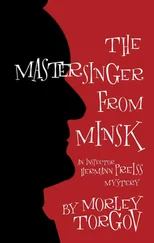Christopher Morley - Where the Blue Begins
Здесь есть возможность читать онлайн «Christopher Morley - Where the Blue Begins» весь текст электронной книги совершенно бесплатно (целиком полную версию без сокращений). В некоторых случаях можно слушать аудио, скачать через торрент в формате fb2 и присутствует краткое содержание. Жанр: Проза, на английском языке. Описание произведения, (предисловие) а так же отзывы посетителей доступны на портале библиотеки ЛибКат.
- Название:Where the Blue Begins
- Автор:
- Жанр:
- Год:неизвестен
- ISBN:нет данных
- Рейтинг книги:5 / 5. Голосов: 1
-
Избранное:Добавить в избранное
- Отзывы:
-
Ваша оценка:
- 100
- 1
- 2
- 3
- 4
- 5
Where the Blue Begins: краткое содержание, описание и аннотация
Предлагаем к чтению аннотацию, описание, краткое содержание или предисловие (зависит от того, что написал сам автор книги «Where the Blue Begins»). Если вы не нашли необходимую информацию о книге — напишите в комментариях, мы постараемся отыскать её.
Where the Blue Begins — читать онлайн бесплатно полную книгу (весь текст) целиком
Ниже представлен текст книги, разбитый по страницам. Система сохранения места последней прочитанной страницы, позволяет с удобством читать онлайн бесплатно книгу «Where the Blue Begins», без необходимости каждый раз заново искать на чём Вы остановились. Поставьте закладку, и сможете в любой момент перейти на страницу, на которой закончили чтение.
Интервал:
Закладка:
He ran nimbly up the long steps that scale the cliff, and approached the episcopal residence. The bell was plainly visible. He rang, and presently came a tidy little housemaid. He had meditated a form of words. It would be absurd to say “Is the Bishop in?” for he knew the Bishop was in. So he said “This is Mr. Gissing. I think the Bishop is expecting me.”
Bishop Borzoi was an impressive figure — immensely tall and slender, with long, narrow ascetic face and curly white hair. He was surprisingly cordial.
“Ah, Mr. Gissing?” he said. “Sit down, sir. I know Beagle and Company very well. Too well, in fact-Mrs. Borzoi has an account there.”
Gissing, feeling rather aghast and tentative, had no comment ready. He was still worrying a little as to the proper mode of address.
“It is very pleasant to find you Influential Merchants interested in the Church,” continued the Bishop. “I often thought of approaching the late Mr. Beagle on the subject of a small contribution to the cathedral. Indeed, I have spent so much in your store that it would be only a fair return. Mr. Collie, of Greyhound, Collie and Company, has been very handsome with us: he has just provided for repaving the choir.”
Gissing began to fear that the object of his visit had perhaps been misunderstood, but the prelate's eyes were bright with benignant enthusiasm and he dared not interrupt.
“You inquired most kindly in your letter as to a possible vacancy in the Church. Indeed there is a niche in the transept that I should be happy to see filled. It is intended for some kind of memorial statue, and perhaps, in honour of the late Mr. Beagle—”
“I must explain, Sir Bishop,” said Gissing, very much disturbed, “that I have left Beagle and Company. The contribution I wish to make to the Church is not a decorative one, I fear. It is myself.”
“Yourself?” queried the Bishop, politely puzzled.
“Yes,” stammered Gissing, “I — in fact, I am hoping to — to enter the ministry.”
The Bishop was plainly amazed, and his long, aristocratic nose seemed longer than ever as he gazed keenly at his caller.
“But have you had any formal training in theology?”
“None, right reverend Bishop,” said Gissing, “But it's this way,” and, incoherently at first, but with increasing energy and copious eloquence, he poured out the story of his mental struggles.
“This is singularly interesting,” said the Bishop at length. “I can see that you are wholly lacking in the rudiments of divinity. Of modern exegesis and criticism you are quite innocent. But you evidently have something which is much rarer — what the Quakers call a concern. Of course you should really go to the theological seminary and establish this naif intuitive mysticism upon a disciplined basis. You will realize that we churchmen can only meet modern rationalism by a rationalism of our own — by a philosophical scholarship which is unshakable. I do not suppose that you can even harmonize the Gospels?”
Gissing ruefully admitted his ignorance.
“Well, at least I must make sure of a few fundamentals,” said the Bishop. “Of course a symbological latitude is permissible, but there are some essentials of dogma and creed that may not be foregone.”
He subjected the candidate to a rapid catechism. Gissing, in a state of mind curiously mingled of excitement and awe, found himself assenting to much that, in a calmer moment, he would hardly have admitted; but having plunged so deep into the affair he felt it would be the height of discourtesy to give negative answers to any of the Bishop's queries. By dint of hasty mental adjustments and symbolic interpretations, he satisfied his conscience.
“It is very irregular,” the Bishop admitted, “but I must confess that your case interests me greatly. Of course I cannot admit you to ordination until you have passed through the regular theological curriculum. Yet I find you singularly apt for one without proper training.”
He brooded a while, fixing the candidate with a clear darkly burning eye.
“It struck me that you were a trifle vague upon some of the Articles of Religion, and the Table of Kindred and Affinity. You must remember that these articles are not to be subjected to your own sense or comment, but must be taken in the literal and grammatical meaning. However, you show outward and visible signs of an inward and spiritual grace. It so happens that I know of a small chapel, in the country, that has been closed for lack of a minister. I can put you in charge there as lay reader.”
Gissing's face showed his elation.
“And wear a cassock?” he cried.
“Certainly not,” said the Bishop sternly. “Not even a surplice. You must remember you have not been ordained. If you are serious in your zeal, you must work your way up gradually, beginning at the bottom.”
“I have seen some of your cloth with a little purple dickey which looks very well in the aperture of the waistcoat,” said Gissing humbly. “How long would it take me to work up to that?”
Bishop Borzoi, who had a sense of humour, laughed genially.
“Look here,” he said. “It's a fine afternoon: I'll order my car and we'll drive out to Dalmatian Heights. I'll show you your chapel, and tell you exactly what your duties will be.”
Gissing was startled. Dalmatian Heights was only a few miles from the Canine Estates. If the news should reach Mr. Poodle…
“Sir Bishop,” he said nervously, “I begin to fear that perhaps after all I am unworthy. Now about those Articles of Religion: I may perhaps have given some of them a conjectural and commentating assent. Possibly I have presumed too far—”
The Bishop was already looking forward to a ride into the country with his unusual novice.
“Not at all, not at all,” he said cheerily. “In a mere lay reader, a slight laxity is allowable. You understand, of course, that you are expressly restricted from the pulpit. You will have to read the lessons, conduct the service, and may address the congregation upon matters not homiletic nor doctrinal; preaching and actual entry into the pulpit are defended. But I see excellent possibility in you. Perform the duties punctually in this very lowly office, and high ranks of service in the church militant will be open.”
He put on a very fine shovel-hat, and led the way to his large touring car.
It was a very uncomfortable ride for Gissing. A silk hat is the least stable apparel for swift motoring, and the chauffeur drove at high speed. The Bishop, leaning back in the open tonneau, crossed one delicately slender shank over another, gazed in a kind of ecstasy at the countryside, and talked gaily about his days as a young curate. Gissing sat holding his hat on. He saw only too well that, by the humiliating oddity of chance, they were going to take the road that led exactly past his own house. He could only hope that Mrs. Spaniel and the various children would not be visible, for explanations would be too complicated. Desperately he praised the view to be obtained on another road, but Bishop Borzoi was too interested in his own topic to pay much attention.
“By the way,” said the latter, as they drew near the familiar region, “I must introduce you to Miss Airedale. She lives in the big place on the hill over there. Her family always used to attend what I will now call your chapel; she is a very ardent churchgoer, and it was a sincere grief to her when the place had to be closed. You will find her a great aid and comfort; not only that, she is — what one does not always find in the devouter members of her sex — young and beautiful. I think I understood you to say you are a bachelor?”
They were approaching the last turning at which it was still possible to avoid the fatal road, and Gissing's attention was divided.
Читать дальшеИнтервал:
Закладка:
Похожие книги на «Where the Blue Begins»
Представляем Вашему вниманию похожие книги на «Where the Blue Begins» списком для выбора. Мы отобрали схожую по названию и смыслу литературу в надежде предоставить читателям больше вариантов отыскать новые, интересные, ещё непрочитанные произведения.
Обсуждение, отзывы о книге «Where the Blue Begins» и просто собственные мнения читателей. Оставьте ваши комментарии, напишите, что Вы думаете о произведении, его смысле или главных героях. Укажите что конкретно понравилось, а что нет, и почему Вы так считаете.










